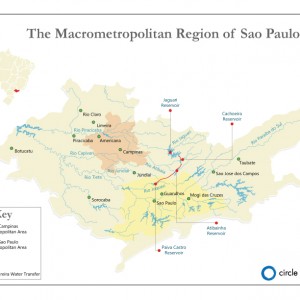The Stream, May 22: Sea Level Rise from Antarctic Ice Collapse Brings New Risks to Global Crops
Climate Change
Large areas of Southeast Asia used for rice production, including crop regions in Bangladesh and Vietnam, could disappear as global sea levels rise, according to a new study that takes into account the melting of the Western Antarctica ice sheet, the Guardian reported. Studies recently found that the ice sheet has been destabilized and reached a point of no return, meaning its melting cannot be stopped.
Vegetation growth in arid and semi-arid areas of Australia following a record-breaking deluge in 2010 led the country to become a “carbon sink”—meaning it absorbed more carbon from the atmosphere than it released—and helped global landscapes to absorb more than 40 percent of the emissions from fossil fuels in 2011, according to a new study published in the journal Nature. The findings suggest that changing patterns and amounts of vegetation growth may be mitigating some of the world’s emissions, the authors write in an article for the Guardian.
Mining
Chile’s president has announced her intentions to introduce legislation improving protections for glaciers in the Andes, which provide much of the country’s water supply, Bloomberg News reported. The protection of glaciers is a contentious political topic in the country because it will likely conflict with the construction of new copper mines and the expansion of existing mines.
An independent state entity tasked with eliminating corruption will begin a review of mining companies in South Africa in response to charges that the mines are polluting water, Bloomberg News reported. An environmental group has accused several mining companies of operating in violation of water regulations.
Fukushima
The Tokyo Electric Power Company (TEPCO) began channeling groundwater around its damaged Fukushima nuclear power plant and into the ocean Wednesday after a “breakdown” of its water treatment system, Reuters reported. Approximately 560 metric tons of groundwater were released Wednesday, and the plant will continue to release an average of 100 metric tons of groundwater each day, asserting that the water is within legal limits for radiation.
The Stream is a daily digest spotting global water trends. To get more water news, follow Circle of Blue on Twitter and sign up for our newsletter.
A news correspondent for Circle of Blue based out of Hawaii. She writes The Stream, Circle of Blue’s daily digest of international water news trends. Her interests include food security, ecology and the Great Lakes.
Contact Codi Kozacek







Leave a Reply
Want to join the discussion?Feel free to contribute!